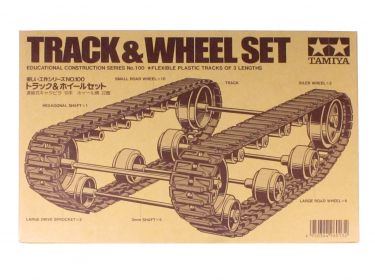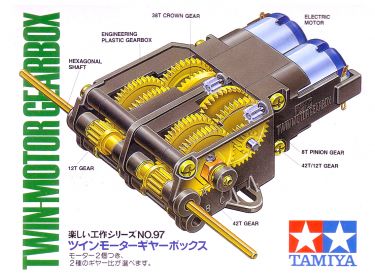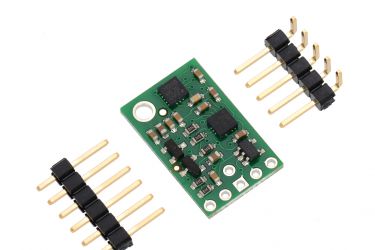Freeduino based robots: Difference between revisions
No edit summary |
|||
| Line 7: | Line 7: | ||
==Robustness== | ==Robustness== | ||
To make sure the robot is robust a sturdy chassis was chosen and therefor tank treads will be attached instead of wheels. This requirement is of great importance for the design of the robots due to the terrain that they need to work and function in, as can be read in the [[scenario]]. | To make sure the robot is robust a sturdy chassis was chosen and therefor tank treads will be attached instead of wheels. This requirement is of great importance for the design of the robots due to the terrain that they need to work and function in, as can be read in the [[scenario]]. This requirement also has a direct link with the Flexibility requirement for the Enterprise, as can be found in the [[USE principles]]. | ||
[[File:trackandwheels.JPG]] | [[File:trackandwheels.JPG]] | ||
Revision as of 18:37, 29 November 2015
To make sure the software can be tested on a swarm of quality robots it was best to create our own. To do this first some requirements based on the USE principles needed to be set:
- Robustness: Robots need to break down as minimum as possible.
- Speed: Robots need to work at reasonable speed but still have enough torque to deal with obstacles etc.
- Tools: Because the robots need to move object some sort of shovel can be attached.
- Sensors: Robots need to be able to know where the others are, know where obstacles and objects are and be aware of current speed, acceleration and direction.
Robustness
To make sure the robot is robust a sturdy chassis was chosen and therefor tank treads will be attached instead of wheels. This requirement is of great importance for the design of the robots due to the terrain that they need to work and function in, as can be read in the scenario. This requirement also has a direct link with the Flexibility requirement for the Enterprise, as can be found in the USE principles.
Speed
To control the speed and torque of the robot twin motor gearbox was chosen with several configurations ranging from 58:1 to 203:1 using an rpm of 72 to 374.
Tools
No Tools Chosen yet
Sensors
To make sure the robot is aware of objects an analog distance measurer using infrared was chosen with a range of 100 to 800 milimeters and a response time of 38ms. File:Infrared.jpg
Also to track speed, acceleration and direction the Pololu MinIMU-9 Gyro, Accelerometer, and Compass can be attached.
Back to: PRE2015 2 Groep1


